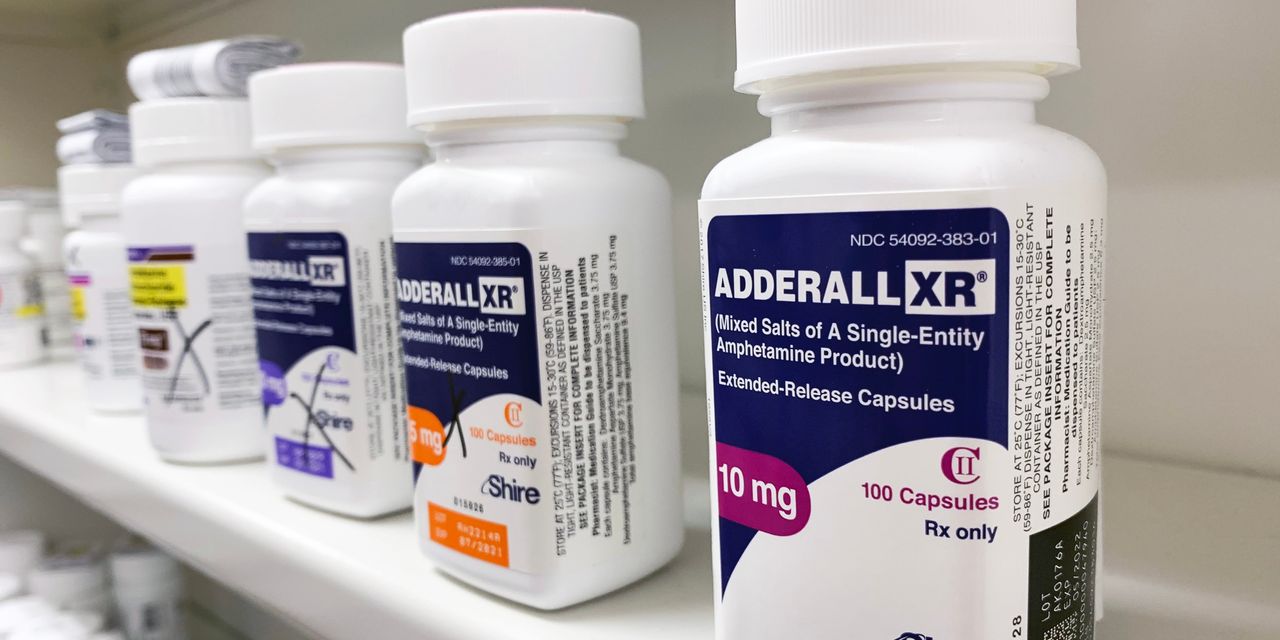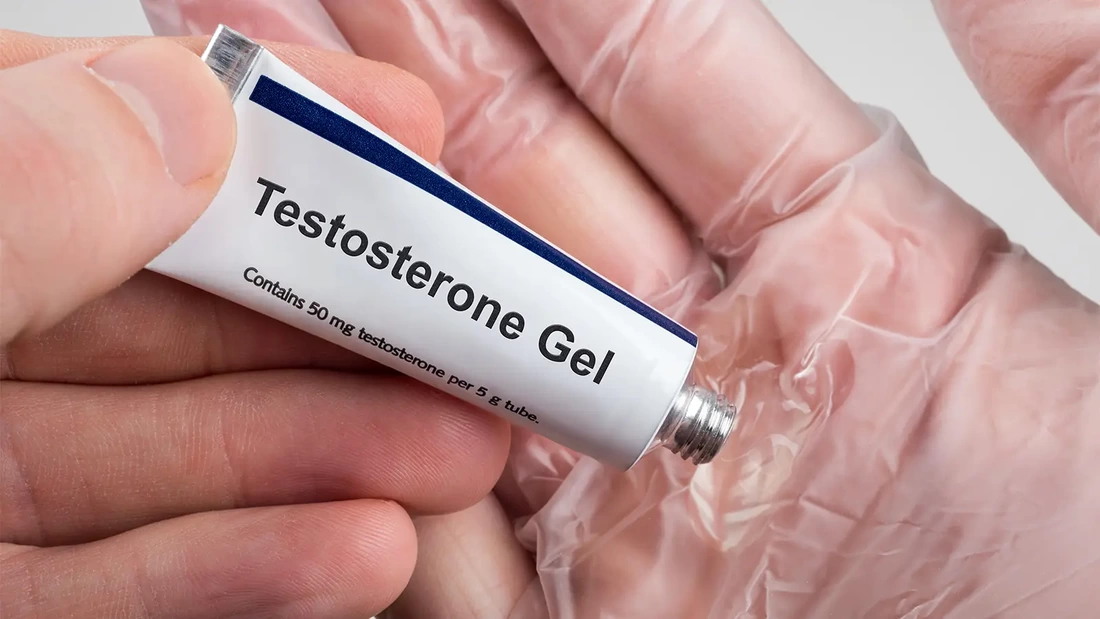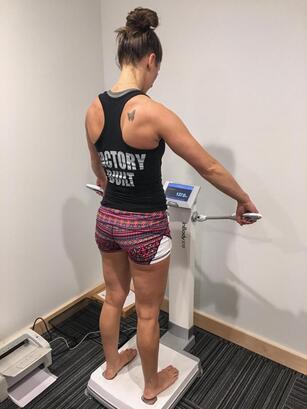Nova Wellness Center
|
As of Monday, August 28, 2023 a new regulation went into effect regarding the transfer of electronic prescriptions.
At a patient’s request, a DEA-registered retail pharmacy can now transfer an electronic prescription for a controlled substance (schedules II-V) to another DEA-registered retail pharmacy. Prior to this change, patients would have to go through their practitioner to cancel their prescription and have it re-issued to a different pharmacy. The process was taxing and time consuming for both patients and practitioners. Under the final rule, a prescription can only be transferred once between pharmacies, and only if allowed under existing state or other applicable law. The prescription must remain in its electronic form; may not be altered in any way; and the transfer must be communicated directly between two licensed pharmacists. It’s important to note, any authorized refills transfer with the original prescription, which means the entire prescription will be filled at the same pharmacy.
0 Comments
Takeda's patent to produce name brand Vyvanse expired in August 2023. The FDA has authorized approximately a dozen pharmaceutical companies to begin manufacturing generic versions of Vyvanse. It could take months or years for some manufacturers to complete quality checks and arrange distribution of their product to pharmacies nationwide. Some manufacturers such as Mallinckrodt and Viatris in the United States, Hikma Pharmaceuticals in the United Kingdom and Sun Pharmaceutical Industries in India have already started shipping their generic versions of Vyvanse. Currently there are no "authorized generics" in production so it is yet to be seen how well the generic products will resemble name brand Vyvanse. Generic medications are required to contain the same active ingredient in the same amount as the name brand medication but the other ingredients (binders, fillers, etc) may be different as can be the manufacturing process. These differences can affect how the drug is absorbed and metabolized by the body. Authorized generics are exactly the same product as the name brand medication. They contain the same active and inactive ingredients and are manufactured according to the specifications of the original manufacturer but sold with a generic label. Often authorized generics are manufactured by the same company in the same facility as the brand name drug.
The American Professional Society of ADHD and Related Disorders (APSARD) is developing guidelines for healthcare professionals who diagnose and treat adult patients who have attention deficit disorder. These guidelines are expected to be released in 2023. Click the file below to read the press release from APSARD>
(Bloomberg Law 8/25, Muller, Subscription Publication) reports, “Almost 40% of people hospitalized in the US with the COVID subvariant that circulated this spring were vaccinated and boosted, highlighting how new strains have mutated to more readily escape the immunity offered by current shots,” according to findings from the CDC. Bloomberg Law adds, “From the end of March through May, when the Omicron BA.2 and BA.2.12.1 subvariants were dominant in the US, weekly hospitalization rates increased for all adults – with those over 65 hit the hardest.”
The excerpt above was received by Dr. Sachdev from Medical News Roundup (an email publication for physicians) From Dr. Sachdev- Before the COVID-19 pandemic pharmaceutical companies were working to develop vaccines for the common cold. Cold infections are usually caused by rhinovirus, coronavirus or respiratory syncytial virus(RSV). It was my understanding that an effective vaccine had not been approved because these viruses frequently mutate, creating a moving target for big pharma. I never supported developing a vaccine to protect against common cold infections, having a cold is inconvenient but the symptoms are usually mild and self limiting. The immune system, like any other organ system, needs to be stimulated regularly to function properly. Some scientists have proposed that the overuse of vaccinations, antibiotics, and other measures have led to hypersensitive immune systems which may be responsible for the increase in allergic reactions, food or environmental intolerances and autoimmune diseases. The immune system, just like the musculoskeletal system, functions best when it is exercised regularly. The immune system becomes more competent fighting infections after developing innate expertise from past infections. I believe it is normal for children to be exposed to cold viruses and other childhood infections. Having symptoms of infection is inconvenient but well worth the long term investment in developing natural lifelong immunocompetency. I do not believe vaccines are as effective as the innate immunity that a person gains from having recovered from an infection like chickenpox or mononucleosis. It is also important to note that vaccines are only effective when the immune system is robust and performing properly. As an integrative provider, I will continue to advise my patients to support their immune systems through adequate rest, nutrition and hydration. Excerpt from a recent news update in Medpage Today:
"Normal testosterone levels in men might be protective against severe COVID-19, a retrospective cohort study suggested. Among 723 men with a mean age of 55, those who had hypogonadism had a higher risk of hospitalization for COVID-19 versus men with eugonadism (OR 2.4, 95% CI 1.4-4.4, P<0.003). Of these men, 45% with hypogonadism were hospitalized with COVID-19 versus only 12% with eugonadism, the group noted in JAMA Network Open. "The fact that testosterone treatment lowered the risk further solidified our finding that low testosterone should be considered a risk factor for hospitalization from COVID".- Sandeep Dhindsa, MD, of St. Louis University School of Medicine in Missouri The study's findings build upon prior research led by Dhindsa, which found that men with severe COVID illness tended to have significantly lower testosterone levels at the time of diagnosis than men with mild cases: 151 ng/dL versus 53 ng/dL. This trend also held true throughout the course of COVID illness." Link to this article: https://www.medpagetoday.com/infectiousdisease/covid19/100520 DISCLAIMER ** The information below was originally provided by BioTE, it was information provided to Dr. Sachdev via a BioTE physician educational newsletter, it has been modified sightly to post on our blog for our patients education. This information was NOT originally authored by Dr. Sachdev.
Mood, Anxiousness, & Hormone Balance Particularly in times of stress, an imbalance of the body's stress hormones adrenaline and cortisol can cause a variety of emotional symptoms, including low mood, anxiousness, moodiness, jitteriness, irritability, and difficulty concentrating. Imbalances in estrogen and testosterone may affect a person's emotional state. Low estrogen, in particular, may be misdiagnosed as depression, anxiety, bipolar, or other mental health disorders. Estrogen can increase serotonin and beta-endorphins, which are associated with positive mood states. Decreased levels of estrogen have been associated with panic attacks, low mood, anxiousness, and mood swings. Replacing the estrogen that is being lost and returning it to normal levels may relieve the emotional symptoms of hormone imbalance and restore better health. While the relationship between estrogen, testosterone, progesterone, and mental health are well known, the impact of thyroid hormone on emotional well-being is equally important. Hyperthyroidism, a condition where the thyroid becomes overactive, can cause low mood, anxiousness, and panic attacks.  This blog post was submitted by Dr. Lisa Sachdev The information below came from BioTE, it was not written by Dr. Sachdev. It is being posted for the benefit of our patients and the general public. Testosterone & Immune Function Testosterone plays a well-documented role in regulating the immune response. Just like estrogen enhances the immune response, testosterone is essential in keeping this response in check. Without sufficient testosterone, many men are susceptible to overactive immune responses aimed at trying to fight infection. This response, termed a “Cytokine Storm,” can have disastrous effects on an already sick patient and may be fatal in some cases. A recent study conducted on 45 patients in Hamburg, Germany, discovered a link between low testosterone and patient susceptibility to COVID-19. Testosterone is further important to the body’s ability to fight infection through its role in managing stress and promoting sleep. Imbalances in estrogen and testosterone may affect a patient’s emotional state, which can have a negative impact on the immune system. Moments of high stress can increase anxiousness and can make it difficult for patients to fall and stay asleep. Insufficient sleep can drastically weaken the immune system and undermine patient health. On the other hand, sufficient sleep can increase infection-fighting antibodies and other health-promoting cells. As we age, andropause in men and menopause in women can cause hormone imbalance and make sleeping soundly a challenge. In men, balancing testosterone levels using Bioidentical Hormone Replacement Therapy (BHRT) may help promote restfulness. During sleep, the body releases pro-inflammatory cytokine proteins, which are essential for fighting infection. Studies have shown that sleep plays a role in how these proteins promote the interaction between antigen-presenting cells and T helper cells and may play a role in the formation of immunological memory. Estrogen, Progesterone, & Immune Function Women have been shown to have a heightened immune system as compared with their male counterparts. This difference in immune response may be tied to estrogen levels. Estrogen interacts with immune cells, mostly through estrogen receptors. These receptors affect multiple aspects of immune cell function, including T cell activation and multiplication. T cells are especially important because they help the body fight infection. Estrogen is also responsible for helping to regulate and boost other cells in the immune system, including neutrophils and natural killer cells. Estrogens can also alter the function of macrophages, the white blood cells that help remove foreign particles, bacteria, and viruses from the bloodstream. While vitamin D has long been known to be essential to immune response, there may also be a relationship between progesterone, vitamin D, and the immune system. Within the immune system, vitamin D helps regulate protective T cells. Progesterone may increase T cell reception of vitamin D. This increased sensitivity to vitamin D may boost the production of these protective cells, thus creating a more robust immune system overall. IF YOU ARE NOT SURE WHAT YOUR LEVELS ARE SCHEDULE A BLOOD DRAW TO HAVE IT CHECKED.  written by Dr. Lisa Sachdev You survived the great pandemic. You were responsible and stayed home for 10 weeks to "flatten the curve", but what affect did this have on your own curves? Did you stay up late binge-watching Netflix? Did you also binge on take-out dining and comfort food? Did you have the time, discipline and creativity to exercise in your living room or was most of your time spent glued to a computer screen or television? Now that you're venturing out again will your friends still recognize you? Getting your hair done requires a simple visit to your stylist but getting back into your normal clothes may prove to be a difficult task. If you've put on pounds this spring do you have a plan to get back down to your normal weight? Exercise is a good idea, but simply increasing your activity isn't likely to result in significant weight loss. There is truth to the cliche, "You can't outrun your diet." If you need to lose weight you'll need to create a caloric deficit and optimize your hormone levels, unbalanced hormones can hinder weight loss efforts. In the world of weight-loss diets, low-carbohydrate, high-protein eating plans have become very popular. The Paleo, South Beach, and Atkins diets all fit into that category. Low carbohydrate diets are sometimes referred to as ketogenic or “keto” diets. Ketogenic diets force your body to switch from burning sugar (glucose) derived from carbohydrates to burning ketone bodies, a type of fuel produced by the liver from stored body fat. Burning fat seems like an ideal way to lose weight and improve overall body composition but adhering to a ketogenic diet can be tricky. It requires you to deprive yourself of carbohydrates, fewer than 20 to 50 grams of carbs per day. Dietary protein intake must also be specific, consume too much protein and your body converts it into glucose, consume too little and you may sacrifice muscle mass. It typically takes a few days to reach a state of ketosis, and even longer for your body to adapt to utilizing ketones for fuel, a process known as “keto adaptation”. During the first few weeks you may experience symptoms known as the “keto flu”. Symptoms of keto flu may include mood swings, brain fog, fatigue, hunger, dehydration, muscle cramps, and constipation. Persons who have underlying health conditions like high blood pressure or diabetes or who take prescription medications can experience rapid changes in blood pressure, hydration and blood sugar levels. Medications may need adjustment as the body adapts to the rapid change in metabolism. In addition to being challenging to adhere to, when done incorrectly or for extended periods of time ketogenic diets can cause nutritional deficiencies, kidney stones, gallbladder disease, thyroid abnormalities and liver problems. Ketogenic diets may not be successful for dieters who lack the proper education in nutrition, physiology and biochemistry. Some prescription medications may also be contraindicated on a ketogenic protocol, medical supervision is recommended for safety and success. Done correctly ketogenic diets can be a powerful tool for rapid and effective weight loss and improve metabolic conditions such as insulin resistance. For those interested in trying a ketogenic program but who need assistance our clinic offers the Ideal Protein protocol that is physician supervised and simple to follow. Weekly coaching sessions include education, support, and biometric analysis to monitor progress. For more information on this program register one of our free seminars. |
Authors
|
||||||||
Nova Wellness Center is a welcomed alternative to the fast-paced, impersonal, conventional-medical setting. Each patient who visits our facility is treated as an individual. We schedule adequate time to discuss your health concerns and wellness goals with you. We offer many evaluation and treatment modalities that utilize a holistic approach to medicine.
Our mission is to serve as an antidote to conventional healthcare. We educate our patients to promote wellness, prevent disease and decrease the need for prescription medications.
For your convenience we offer online scheduling for most of our services.
Our mission is to serve as an antidote to conventional healthcare. We educate our patients to promote wellness, prevent disease and decrease the need for prescription medications.
For your convenience we offer online scheduling for most of our services.
Connect with Nova Wellness Center




 RSS Feed
RSS Feed

